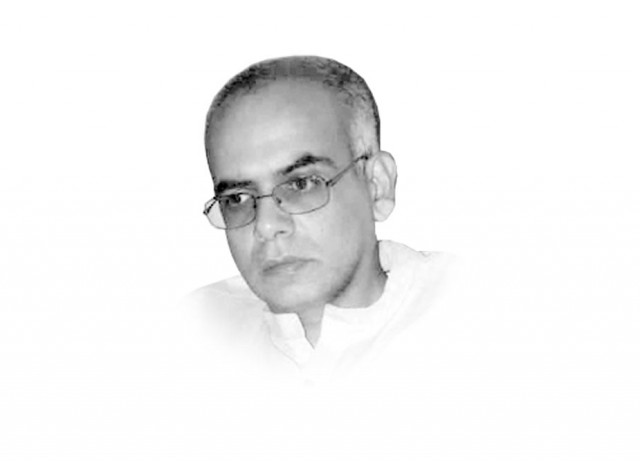Urgent task for our man in Washington
Our new ambassador has described Pakistan’s potential strategic role as serving as “a bridge” between the US and China

The writer is a development anthropologist currently based in Fairfax, Virginia, and teaches at Georgetown and George Washington universities
While the above statements concerning the prospect of US re-engagement with India and Pakistan is already stirring up much contention, especially in India, frustration with Pakistan does also remain quite high within the US establishment in Washington, DC. Our new ambassador to the US must contend with prevailing perceptions within the US about Pakistan’s double standards on the ‘war against terror’, the misuse of American aid, and the military’s continued influence on the democratic process.
While the Pakistani lobby in DC has traditionally blamed the Indians for turning the Americans against them, the controversy sparked by our former ambassador’s admission that his government facilitated placement of US intelligence operatives in Pakistan, which in turn enabled the raid on Osama bin Laden, without the blessings of our military, has added further strain to an already complicated relationship.
Besides engaging with the current administration, our new ambassador is rightly trying to reach out to a wide array of policy and opinion-makers, including not only individual congressmen, but various think tanks, and the American media. I heard him at a recent talk organised by the United States Institute of Peace to focus on Pakistan’s role in Afghanistan and opportunities for US-Pakistani cooperation in this regard.
During this talk, our ambassador outlined a five-pronged approach for addressing the lingering problems in Afghanistan. He pointed to the need of not exclusively relying on military solution; for the need for Pakistan and Afghanistan to keep talking and not engage in hostility; the need for border management; tackling the refugee problem; and, to be open to diverse formulas of negotiated settlement to bring peace in Afghanistan.
While this five-pronged approach is wide-ranging, it has problems, especially how the refugee and border situation is being managed. Instead of taking unilateral steps to seal the border or expel Afghan refugees, it would be useful for Pakistan, through our new ambassador to the US, to try and secure US cooperation in creating ‘pull’ factors to bring Afghan refugees back to Afghanistan, and to help solicit Afghan support for curbing the flow of militants by better border management.
When asked, during the afore-mentioned talk, why Pakistani and US narratives about each other are not as positive as they should be, given the cooperation which still takes place between the two countries, our ambassador dismissed the varied polls illustrating Pakistani resentment of the US and its policies as being accurate and skewed. Instead of being dismissive of such sentiments, however, he could have used this opportunity to highlight the reasons for this resentment, which include the prevailing US tendency of blaming Pakistan even for its own mistakes in Afghanistan, and the US failure to adequately acknowledge the human and economic costs suffered by Pakistan for engaging in the war against terror.
Our new ambassador has interestingly described Pakistan’s potential strategic role as serving as “a bridge” between the US and China within the current geopolitical scenario, a role which Pakistan had also performed back in the early 1970s to help achieve US-Chinese rapprochement. This postulation is particularly interesting, given India’s rising value to the US based on its promise to balance China’s growing strategic shadow in Asia.
Our new ambassador needs to also draw more attention to the post-9/11 myopia within American policy-making, represented by its decision to deal with Pakistan largely from the lens of securing its strategic objectives in Afghanistan. Several Pakistan watchers within the US do realise the futility of ignoring Pakistani concerns vis-a-vis India, which in part also helps them understand Pakistan’s reluctance to let go of its strategic depth doctrine in Afghanistan. The incoming US administration statements have provided Pakistan an unexpected opportunity to convince policymakers in the US that they cannot just expect Pakistan to help the US achieve its goals in Afghanistan, while India continues trying to make inroads into Afghanistan, and to defame Pakistan as a hotbed of militancy and unrest in the region, including in Kashmir.
Published in The Express Tribune, April 8th, 2017.
Like Opinion & Editorial on Facebook, follow @ETOpEd on Twitter to receive all updates on all our daily pieces.















COMMENTS
Comments are moderated and generally will be posted if they are on-topic and not abusive.
For more information, please see our Comments FAQ